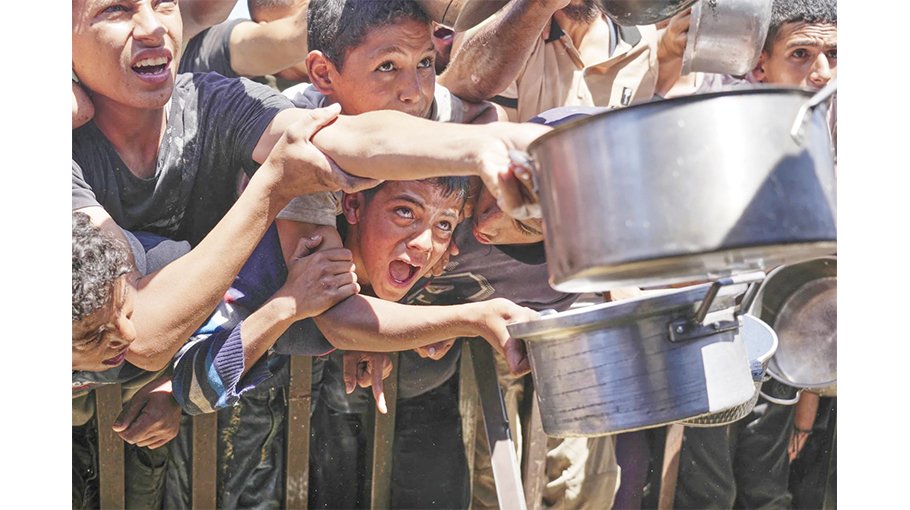60 killed by Israeli strikes in Gaza
Israel lets minimal aid in

At least 60 people were killed by Israeli strikes across Gaza in a 24-hour period, Gaza’s health ministry said Friday, as Israel pressed ahead with its military offensive and let in minimal aid to the strip.
The dead included 10 people in the southern city of Khan Younis, four in the central town of Deir al-Balah and nine in the Jabaliya refugee camp in the north, according to the Nasser, Al-Aqsa and Al-Ahli hospitals where the bodies were brought.
Israel faces mounting international criticism for its offensive and pressure to let aid into Gaza amid a humanitarian crisis. Gaza has been under an Israeli blockade for nearly three months, with experts warning that many of its 2 million residents are at high risk of famine.
Even the United States, a staunch ally, has voiced concerns over the hunger crisis.
The strikes that lasted into Friday morning came a day after Israeli tanks and drones attacked a hospital in northern Gaza, igniting fires and causing extensive damage, Palestinian hospital officials said on Thursday. Videos taken by a health official at Al-Awda Hospital show walls blown away and thick black smoke billowing from wreckage.
Israel said it will continue to strike until Hamas releases all of the 58 remaining Israeli hostages and disarms. Fewer than half of the hostages still in Gaza are believed to be alive, after most of the rest were returned in ceasefire agreements or other deals.
Aid starts entering, but nothing like enough
Amid pressure, Israel started letting in aid. Israeli officials said Friday they let in more than 100 trucks of aid, including flour, food, medical equipment and drugs. The trucks came in through the Kerem Shalom crossing.
But U.N. agencies say the amount is woefully insufficient, compared with around 600 trucks a day that entered during a recent ceasefire and that are necessary to meet basic needs. U.N. agencies say Israeli military restrictions and the breakdown of law and order in Gaza make it difficult to retrieve and distribute the aid. As a result, little of it has so far reached those in need.
U.N. Secretary-General Antonio Guterres said Friday that Israel had so far authorized what “amounts to a teaspoon of aid when a flood of assistance is required,” with no supplies at all reaching northern Gaza.
On Friday dozens of people crowded a charity kitchen in Khan Younis, holding empty pots and plastic containers in the air in hopes of receiving a share of lentil soup.
Halima Abu Amra, a displaced woman from Rafah, said she had been struggling to feed a daughter injured in the fighting. She said she had been collecting discarded bread from the streets, washing and soaking it so her daughter can eat, while her younger children get by on soup.
“We want this war to end in any way,” she said. “My family is dying slowly.”



